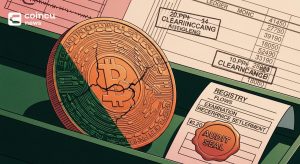Key Points:
- A federal judge rules in favor of the SEC Coinbase lawsuit, affirming crypto assets as securities.
- Wahi settles with the SEC and DOJ, and Ramani faces legal action for involvement in trades.
- Kraken contests the SEC lawsuit, alleging retaliation, amid regulatory debate on crypto securities.
According to Fortune, a federal judge in the Western District Court of Washington issued a significant ruling in a case involving alleged insider trading of cryptocurrencies on Coinbase.

Read more: Coinbase Ventures Review: The Most Dynamic Investment Fund
Federal Judge Affirms Cryptocurrencies as Securities in SEC Coinbase Lawsuit
Ishan Wahi, a former Coinbase employee, along with his brother, settled with both the Department of Justice and the Securities and Exchange Commission (SEC), but their friend Sameer Ramani remains at large.
The ruling, which partially favored the SEC’s request for a default judgment against Ramani, establishes that the crypto assets in question were considered securities, despite being traded on a secondary market. This decision aligns with SEC Chair Gary Gensler’s stance that most crypto activities fall under the agency’s jurisdiction.
The SEC Coinbase lawsuit stemmed from accusations that Wahi shared confidential information with his brother and Ramani, leading to trades that netted over $1.5 million. While Wahi and his brother settled to avoid a ruling on the security status of the tokens, Ramani faces legal action, with the SEC pursuing a default judgment.
Judge Tana Lin’s ruling emphasized that the tokens involved were promoted by issuers with expectations of increased value, even when traded on secondary markets like Coinbase. This decision differs from previous rulings, as it involves secondary transactions, expanding the SEC’s regulatory reach.
Kraken Challenges SEC Lawsuit Amid Heightened Regulatory Tensions
Meanwhile, another crypto exchange, Kraken, filed a motion to dismiss a lawsuit from the SEC, alleging failure to register with the agency and commingling customer funds. Kraken argues that the SEC’s action came as retaliation for political speech, echoing similar claims made by competitors Binance and Coinbase.
The SEC Coinbase lawsuit underscores the ongoing debate over whether crypto assets constitute securities, a question likely to reach the Supreme Court due to multiple lawsuits across different circuits. As regulatory scrutiny intensifies, exchanges like Coinbase and Kraken face increasing pressure to comply with securities laws.
| DISCLAIMER: The information on this website is provided as general market commentary and does not constitute investment advice. We encourage you to do your own research before investing. |






















